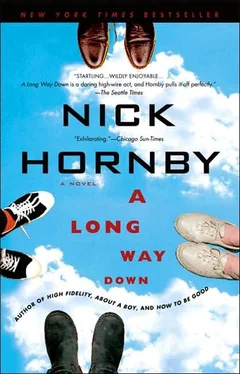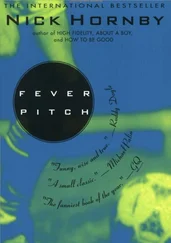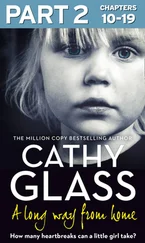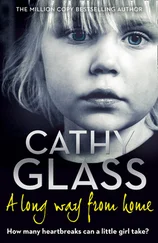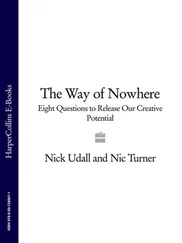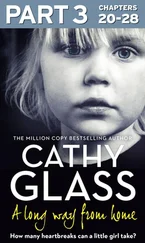“We thought we’d turned a corner.” It’s always very touching, his insistence on the first person plural. I’ve heard them all: “Since we came out of prison…”, “Since we had that spot of bother with the teenage girl…» If there was one cause for regret after a successful suicide attempt, it would be that I’d never get to hear Theo say, “Since we killed ourselves…” Or, “Since our funeral…”
“We thought wrong.”
There was a ruminative silence.
“Well. Gosh. Now what?”
“You’re the agent. I’d have thought this gave you no end of creative opportunities.”
“I’ll have a little think and call you back. By the way, Jess’s father has been trying to get hold of you. He called here, and I said we didn’t give out personal numbers. Did I do the right thing?”
“You did the right thing. But give him my mobile number anyway. I suppose there’s no avoiding him.”
“Do you want to call him? He left his number.”
“Go on, then.”
While I was on the phone to Theo, both my ex-wife and my ex-girlfriend left messages. I had thought of neither of them when Theo was reading out that story; now I felt sick. I was beginning to realize an important truth about suicide: failure is as hurtful as success, and is likely to provoke even more anger, because there’s no grief with which to water it down. I was, I could hear from the tone of the messages, in very deep shit.
I called Cindy first.
“You fucking selfish idiot,” she said.
“You don’t know anything, apart from what you read in the paper.”
“You seem to be the only person in the world that the papers get bang to rights. If they say you’ve slept with a fifteen-year-old, you have. If they say you’ve fallen over drunk in the street, you have. They don’t need to invent stuff for you.”
This was actually quite an acute observation. She was right: not once have I been the victim of misrepresentation or distortion. If you think about it, that was one of the most humiliating aspects of the last few years. The papers have been full of shit about me, and every word of the shit was true.
“So I’m presuming,” she went on, “that they’ve got it right again. You were up the top of a tower-block with the intention of hurling yourself off. And instead you came back down again with a girl.”
“That’s about the long and the short of it.”
“And what about your daughters?”
“Do they know?”
“Not yet. But someone at school will tell them. They always do. What do you want me to say to them?”
“Maybe I should talk to them.”
Cindy barked once. The bark was, I suspected, intended to be a satirical laugh.
“Tell them what you want,” I said. “Tell them Daddy was sad, but then he cheered up again.”
“Brilliant. If we had a pair of two-year-olds, that would be perfect.”
“I don’t know, Cindy. I mean, if I can’t see them, then it’s not really my problem, is it? It’s something you’ve got to deal with.”
“You bastard.”
And that was the end of the first phone call. Pointing out that her refusal to let me participate in my daughters’ upbringing left me out in the cold struck me as a restatement of the bleeding obvious, but never mind. It got her off the phone.
I don’t know what I owe my daughters any more. I gave up smoking, years ago, because I knew then that I owed them that much. But when you make the sort of mess I’ve made, smoking seems like the least of your worries—which is why I started again. Now there’s a journey: from giving up smoking—giving up smoking because you want to protect your kids from loss for as long as possible—to arguing with their mother about the best way to tell them of your attempted suicide. They never said anything about that conversation in antenatal classes. It’s the distance that does it, of course. I got further and further away, and the girls got smaller and smaller until they were just tiny dots, and I could no longer see them, literally or metaphorically. You can’t make out their faces, can you, when they’re just tiny dots, so you don’t need to worry about whether they’re happy or sad. It’s why we can kill ants. And so after a while, suicide becomes imaginable, in a way that wouldn’t be possible if they looked into your eyes every day.
Penny was still crying when I called her.
“At least that makes more sense,” she said after a while.
“What?”
“You leaving the party to go up there. And then coming back with those people. I couldn’t work out what they had to do with anything.”
“All you knew was that somehow they’d helped me to have sex with someone else.”
“Exactly.” She gave a little rueful snort. She’s OK, Penny. She’s not a bitch at all. She’s sweet-natured, self-deprecating, loving… She’d make someone a lovely partner. “I’m sorry.”
“I’m the one who’s failed, aren’t I?”
“I think my failures preceded yours. Which, by the way, don’t amount to anything. I mean, anything at all. I mean, there weren’t any failures. You’ve been fantastic to me.”
“How do you feel today?”
I hadn’t asked myself that question. I’d woken up with a hangover and the phone ringing, and since then, life seemed to have a momentum. I hadn’t thought about killing myself once all morning.
“OK. I won’t be going up there again just yet, if that’s what you mean.”
“Will you talk to me before you do?”
“About all that?”
“Yes. About all that.”
“I don’t know. It doesn’t seem like something talking can fix.”
“Oh, I know I can’t fix it. I just don’t want to have to read about itin the papers.”
“You can do better than this, Penny. Better than me.”
“I don’t want to.”
“Ah. So you don’t disagree with the premise.”
“I’ve got enough self-respect to think that there might be a man somewhere who’d rather spend New Year’s Eve with me than leap to his death, yes.”
“So why don’t you try and find him?”
“Would you care one way or the other?”
“Well. Caring about stuff like that… It’s sort of not where I’mat, is it?”
“Wow. That’s honest.”
“Is it? I would have thought it was merely self-evident.”
“So what do you want me to do?”
“I’m not sure there’s much you can do.”
“Will you call me later?”
“Yes, of course.”
I could promise that much, anyway.
Everyone—everyone apart from Chris Crichton, obviously—knows where I live. They all have my home phone number, my mobile number, my email address. When I came out of prison, I gave all my coordinates to anyone who showed any interest at all: I needed work, and I needed a profile. I never heard back from any of the bastards, of course, but now here they all were, gathered outside my front door. When I say “all”, I mean three or four rather squalid-looking hacks, mostly the young ones, those puffy-faced boys and girls who used to report on school fetes for a local paper and now can’t believe their luck. I pushed through the middle of them, even though I could have walked around them quite comfortably—four people shivering on a pavement and sipping coffee from Styrofoam cups doesn’t constitute a media scrum. We all enjoyed the pushing, though. It made me feel important, and it made them feel as though they were at the centre of a story. I smiled a lot, said “Good morning” to no one in particular, and batted one of them out of the way with a briefcase.
“Is it true you tried to kill yourself?” asked one particularly unattractive woman in a beige mac.
I gestured at myself, in order to draw their attention to my superb physical condition.
Читать дальше
